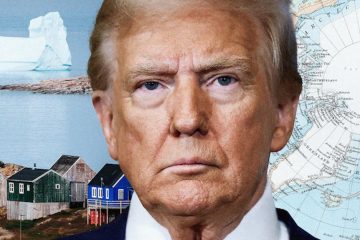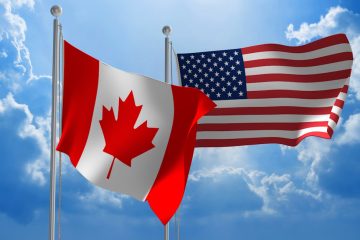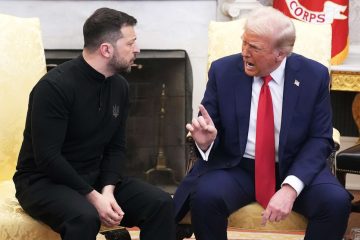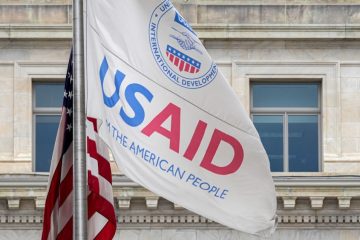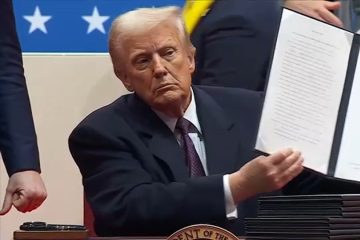Trump’s long-awaited day has finally come
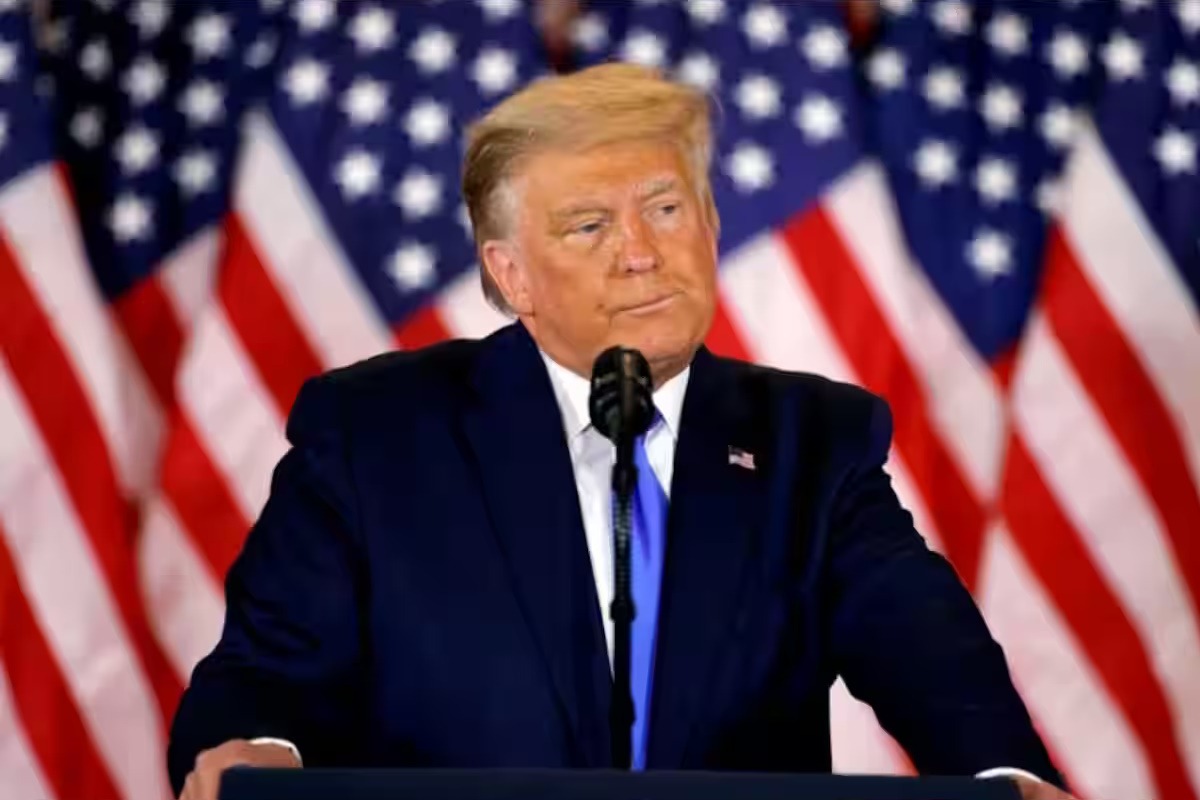
Donald Trump, the former president, will face a criminal trial in a New York court on Monday. This marks a unique period where Trump, a Republican, will simultaneously campaign for a new term while defending himself against allegations of orchestrating an illicit scheme to silence a pornographic actress.
The People v. Trump case is characterized by a combination of positive and negative aspects, with the least significant consequences among the four legal proceedings he is involved in. If convicted, Trump would not be subject to a mandatory prison sentence. Regardless of the scandalous background, the central issue of the case revolves around documents: specifically, whether Trump manipulated the business and financial records that were used to cover up the hush money. However, it is possible that the case, initiated by Manhattan District Attorney Alvin Bragg, will be the sole criminal matter involving Trump to conclude prior to Election Day.
The potential consequences of a conviction for Trump, who is widely expected to become the Republican nominee, may have a significant impact on the political landscape. According to research conducted by the Wall Street Journal and surveys of Republican primary voters, several supporters of Trump have expressed their intention to alter their voting decisions if he were to be found guilty of a serious crime. However, it is possible that this situation was handled with indifference. Despite facing increasing legal issues, Trump easily won in the presidential primaries. Throughout this time, he consistently complained about the charges against him, claiming they were driven by political motives.
The trial is expected to create a spectacle-like ambiance in lower Manhattan for several weeks. Barriers and an extensive law-enforcement presence will around the courthouse. Secret Service personnel will accompany Trump to and from the courtroom located on the 15th floor. Trump is obligated to participate in the trial. Consequently, he will allocate four days per week to sit at the defense table rather than engaging in campaign activities. Trump’s political team has been attempting to leverage his plight as an unorthodox catalyst for mobilizing supporters.
“I will be forced to defend myself in court while fervent Democrats raise millions,” Trump stated in a campaign email last week.
Trump’s legal team has made multiple attempts to postpone the trial, but their success in doing so has been limited. Last week, they attempted multiple attempts that were unlikely to succeed in order to halt the proceedings, but their efforts were unsuccessful.
The investigation of Trump by the Manhattan district attorney commenced in August 2019, following a visit by state prosecutors to Michael Cohen in a federal jail.
Cohen, who had been a steadfast supporter of Trump for ten years, had severed ties with his employer and admitted guilt the previous year for committing federal campaign-finance offenses that implicated the president. Trump reciprocated by referring to his former attorney and fixer as a “rat.”
The allegations against Cohen, along with his acknowledgment of unrelated offenses, resulted in a three-year imprisonment at the federal minimum-security prison camp in Otisville, New York.
Cohen found himself in that situation partly due to his payment of $130,000 to adult-film star Stormy Daniels in 2016. The purpose of the payment was to ensure her silence regarding an alleged sexual encounter she had with Trump ten years prior. In that particular year, Cohen also collaborated with American Media Inc., the publisher of the National Enquirer tabloid at the time, to acquire the account of former Playboy model Karen McDougal regarding her 10-month romance with Trump. It is worth noting that Trump denies having had any sexual relationships with either woman.
According to federal authorities, both transactions were deemed criminal. The payment made by Cohen to Daniels was done in collaboration with Trump and was intended to exert influence on the 2016 presidential election. Cohen’s actions gave the impression that he himself had directly provided the Trump campaign with $130,000, which was almost 48 times more than the legal limit for contributions at that time. According to them, the $150,000 payment made by American Media to McDougal was in violation of federal regulations regarding corporate contributions.
During his plea hearing, Cohen stated that Trump instructed him to initiate and organize the illicit payments to Daniels and McDougal. Federal prosecutors chose not to take legal action against Trump, as they followed a longstanding stance of the Justice Department that a president already in office cannot be punished.
However, Trump’s legal vulnerability with New York officials continued to increase. During the meeting with Cohen in prison, the members of the Manhattan district attorney’s office sought his assistance, with the intention of targeting Trump.
The previous federal prosecutors who conducted the investigation discovered that Cohen was reimbursed for the payment made to Daniels in regular monthly installments. These payments were intentionally concealed in Trump’s company documents, appearing as a fee for legal services. The state prosecutors were intrigued by that. Under New York state law, the act of falsifying company documents is considered a misdemeanor. However, if the falsification of records is done with the intention of concealing or committing another crime, it can be upgraded to a felony offense.
The state investigation progressed intermittently. A number of officials from the district attorney’s office expressed reservations over the construction of a compelling case. By the time Bragg, a Democrat, assumed office in 2022, the investigation into hush-money had been largely neglected by the office.
Bragg and his colleagues thoroughly examined the evidence from a new perspective and commenced its presentation to a grand jury in January of the previous year. The indictment includes 34 felony counts, all of which are directly related to the records that prosecutors claim Trump manipulated when reimbursing Cohen for the Daniels arrangement. The package consists of 11 invoices, 12 general ledger entries, and 11 checks.
The state prosecutors have asserted that each of the 34 charges against Trump are felonies, as they claim that the former president deliberately created and facilitated the fake record entries with the intention of committing or concealing another crime.
According to court records from the district attorney’s office, the additional crimes that could be involved include federal campaign-finance violations similar to those committed by Cohen, violations of a state election law that focuses on illegal conspiracies to support political candidates, or a tax felony. Prosecutors are not need to demonstrate the commission of the crimes, but only the intention of Trump to conduct them.
The trial is anticipated to span a duration of six to eight weeks, with the process of selecting the jury, commencing on Monday, projected to need a week or possibly longer.
Bragg has presented the case as being about election meddling and plans to provide evidence of a broader “catch-and-kill” strategy aimed at suppressing bad news about Trump during his presidential campaign in 2015 and 2016.
According to those acquainted with the situation, the initial witnesses for the prosecutors are expected to be David Pecker, the former CEO of American Media, and Cohen. Pecker’s testimony has the potential to confirm Trump’s awareness of and involvement in American Media’s endeavors to intercept and suppress potentially unfavorable news about Trump, which includes McDougal’s account.
Cohen’s testimony is anticipated to establish a connection between Trump and the money made to Daniels, as well as the purported scheme to compensate Cohen through fraudulent invoicing. The cross-examination conducted by Trump’s lawyers is expected to be a pivotal aspect of the trial. In court documents, the former Trump attorney has been characterized as a deceitful, dishonest, and legally banned lawyer who prioritizes his own agenda.
Potential additional witnesses may consist of Trump Organization personnel, former Trump advisor Hope Hicks, and both McDougal and Daniels. Daniels previously mentioned on her podcast that she was prepared to provide testimony during the trial. The jury may also receive testimony from Keith Davidson, the legal representative of Daniels in the agreement with Cohen, and Dylan Howard, the former subordinate of Pecker at American Media.
Trump’s legal team has characterized the lawsuit as a disagreement over record-keeping and attempted, without success, to prevent Bragg from making more extensive claims about a plot to quiet those who have accused Trump. They said that such charges are irrelevant to a trial focused on accounting procedures.
His legal team is expected to assert to the jury that Trump, who held the position of president throughout the time when the payments to Cohen were made, was unaware of the production of the disputed business documents.
On Friday, Trump announced his intention to give testimony. “I am only capable of speaking the truth,” he stated. He testified in two recent legal trials, one where a judge determined that he intentionally misrepresented the value of his assets, and the other where a jury concluded that he owed columnist E. Jean Carroll $83 million for making false statements that harmed her reputation.
The hush-money case has garnered skepticism due to the unprecedented approach taken by prosecutors in charging it.
“To effectively argue Bragg’s case, it is crucial to not only focus on the falsified records but also to present it within the framework of the catch-and-kill scheme,” stated Adam Kaufmann, an ex-Manhattan prosecutor and current lawyer. “To establish the felony, it is necessary to have the context that he had the intention to advance a cover-up of the election.”
When making the announcement of Trump’s indictment, Bragg stated that false-records allegations are the primary focus of his office’s white-collar investigations. Since assuming the position of district attorney in 2022, Bragg’s office has filed charges against numerous individuals and corporations, totaling over 500 felony counts for the offense of falsifying documents.
However, Trump’s situation is atypical as he is being accused exclusively of fabricating records, without any other criminal charges. Both are commonly found in typical instances. The distinctiveness of the allegations also creates uncertainty over the potential consequences that Trump may face in the event of a jury finding him guilty.
State Supreme Court Justice Juan Merchan, who is overseeing the case, has considerable authority in deciding the punishment. According to Cheryl Bader, a law professor at Fordham University, it is improbable that a judge will imprison a person who is committing a recording felony for the first time. However, if Trump gives testimony and Merchan finds him to be untruthful, that could influence the judge to impose a prison sentence, according to her.
“If the judge believed that Trump had lied or attempted to use the courtroom as a political platform, it would not be unexpected for the judge to consider that during sentencing,” Bader stated.
Although Merchan may have sentenced Trump to imprisonment, it is uncertain if he would ultimately serve the sentence, mostly owing to security considerations.
In the event that Trump emerges victorious in the upcoming election and subsequently faces criminal charges in any of the ongoing federal lawsuits, he may possess the ability to grant himself a pardon. However, he would not have the authority to remove state convictions. According to Margaret Love, a former Justice Department pardon attorney, being convicted of a felony would result in collateral consequences. These consequences can include both formal legal restrictions, such as a federal prohibition on owning weapons, and informal restrictions, such as limitations on borrowing money or serving in any fiduciary role.
Unless Trump were imprisoned, he would have the right to cast a vote for himself in the general election.


